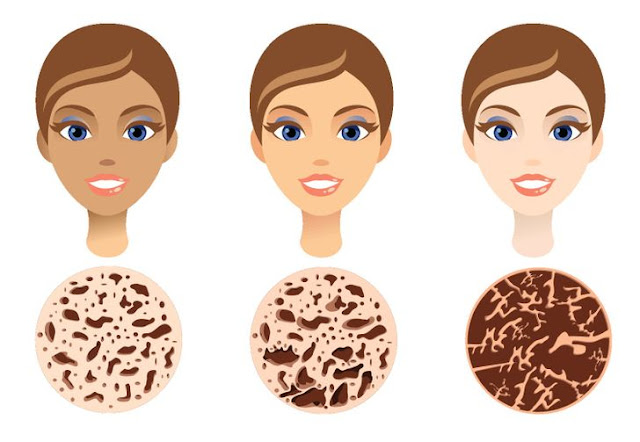A Quick Guide to Getting Enough Vitamin D
A Quick Guide to Getting Enough Vitamin D
If you are like many of my patients, you may be wondering, "Am I getting enough vitamin D?" This is a valid concern, because vitamin D plays a very important role in overall health and, in fact, many people do not get enough. The Centers for Disease Control and Prevention estimates that about one-third of Americans have insufficient levels. The good news is that sources of this vitamin are easily accessible.
Why Is Vitamin D Important?
Vitamin D helps the body absorb calcium from the gut, as well as maintain normal blood levels of calcium and phosphate. These minerals are essential for healthy, strong bones. Bones are constantly being built up and broken down, like a building continuously under construction to maintain its integrity; in medicine we call it "remodeling." Vitamin D supports both the growth and maintenance of the bone. what is daily vite tablet also aids the regulation of cells throughout the body, and helps our nerves, muscles, and immune system function properly. New research is finding that it is also involved in reducing inflammation.
When You Don't Get Enough
A lack of vitamin D can weaken bones, leading to rickets in children and osteoporosis in adults. this can be why older people, who tend to own lower cholecarciferol levels, often need supplements to stop brittle or cutting bones. Symptoms of a deficiency could embrace generalized fatigue, muscle weakness, bone pain, or a foggy feeling.
How a lot of does one Need?
Vitamin D is measured in international units (IU). The National Institutes of Health recommends that most of the people get 600 IU of vitamin D per day, or, if you're over seventy years old, 800 IU. A vitamin D biopsy is that the best thanks to establish your baseline level and see whether or not you are obtaining enough. it's especially vital for those at exaggerated risk of deficiency to induce their cholecarciferol checked. This includes individuals with dark skin; people who get very little sun exposure; older people; vegetarians; people with gi illness or who have had stomachal bypass surgery; and people on bound anti-seizure medications, like sodium thiopental and phenytoin.
Sources of aliment D
Sources of vitamin D are restricted to a number of natural foods, some fortified foods, dietary supplements, and sun exposure:
Sun Exposure. The body makes its own vitamin D once the skin is exposed to ultraviolet B (UVB) rays from the sun. it's onerous to gift clear recommendations for sufficient sun exposure, as many factors play into UVB absorption, also as skin tone, age, geographical location, time of day, environmental factors like fog and smog, and sunscreen application.
That said, attempt to get 10 to fifteen minutes of exposure a minimum of once or double a week, depending on skin tone, with honest skin requiring less time at intervals the sun. Sunscreen--a important tool in willcer|carcinoma} prevention--does block UVB rays. However, since its application is typically imperfect, people will absorb adequate daylight even whereas carrying sunscreen.
Fortunately, your body stores vitamin D in liver and fat cells. If you get enough sunlight during the summer, your body will stockpile a number of the fat-soluble aliment it makes to use later within the year once you might not get enough either through the sun or diet.
Natural Foods. it's perpetually best to induce vitamin D from natural sources when you can. important amounts are found in fleshy fish like salmon, swordfish, and tuna, likewise as some styles of mushrooms. for many people, canned tuna or cod liver oil are simple fixes. Eggs, liver, beef, and sardines also contain vitamin D, however at lower levels. you'll realize it useful to stay a one-day food diary to examine if you're ingesting an adequate quantity through a natural diet.
Fortified Foods. to create up for the shortage of natural sources, within the u. s. some foods are fortified with aliment D, notably milk and orange juice. several cereals are fortified, too. The u. s. Department of Agriculture web site provides a information of organic process content, wherever you'll realize the simplest sources of vitamin D for each natural and fortified foods.
Dietary Supplements. For those who want additional vitamin D, all-time low supplementation generally counseled is 1,000 IU orally per day. For extremely deficient patients, we'll offer a 50,000 IU pill once a week. it's virtually not possible to require poisonous levels of fat-soluble aliment.
Work along with your Physician
I encourage patients to own a operating relationship with their medical aid MD and obtain an annual medical to observe their overall health. If you're not feeling well and suspect that your vitamin D level could be a cause, it is best to examine your doctor to see if supplementation is necessary. the correct tools and support from a knowledgeable and sympathetic primary care doctor are a vital key to a healthy, active life.



Comments
Post a Comment